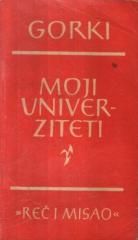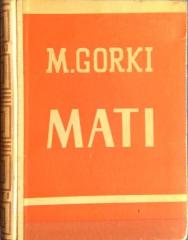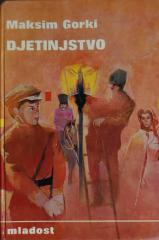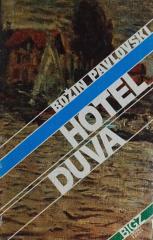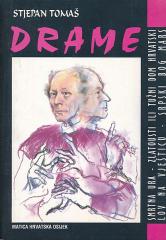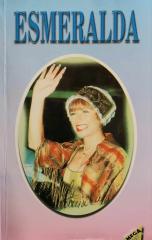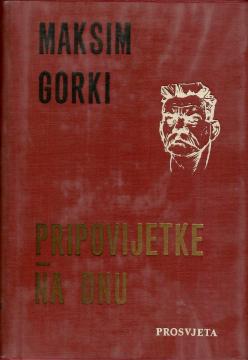
Pripovijetke / Na dnu
Maxim Gorky wrote many short stories that explore the themes of poverty, social injustice, human suffering and willpower. "At the Bottom", a play by Maxim Gorky, is one of the most famous works of Russian realism.
Gorky's short stories are often inspired by personal experiences and the lives of marginalized people, such as workers, beggars and the homeless. Here is a summary of some of the more famous stories:
"Makar Chudra" Gorky's first short story that made him famous. A story about the nomadic way of life and freedom, told through the storyteller's encounter with Roma wanderers. The main characters, Makar and Loiko, symbolize a passionate but destructive love, which ends tragically.
"Old woman Izergil" The story is divided into three parts, each of which carries a special message about human life and destiny. Old woman Izergil tells about her passionate life and two legends: about Larra, a symbol of selfishness, and Danko, who sacrifices his heart to save his people.
"Chelkash" A story about a poor port worker and petty criminal Čelkaš, who despite his difficult life has dignity and a moral code. The story focuses on his relationship with a young peasant who becomes greedy and tries to cheat him.
"Former People" It depicts marginalized people who live on the fringes of society, such as beggars and vagrants. Through their stories, Gorki investigates how society rejects people and takes away their dignity.
Gorki uses simple but picturesque language, mixing realism with romantic and symbolic elements. His stories often have a strong moral message and leave a deep impression on the reader.
Gorky's short stories reflect his social and artistic mission – to depict reality and arouse empathy for those on the margins of society. These are stories about human suffering, but also about an unwavering spirit that overcomes obstacles.
Premiered in 1902, this drama explores themes of human dignity, poverty, illusions and moral dilemmas, set in a dark and gloomy homeless shelter. The work is a strong critique of social injustice and an empathetic depiction of life on the margins of society.
The action takes place in a lodging house run by the cruel boss Kostiljov, together with his wife Vasilisa. The hostel is home to various characters from the bottom of society - homeless people, criminals, alcoholics and workers who have lost hope.
Luka brings light into the lives of the lodgers, encouraging them to believe in a better tomorrow. His philosophy of compassion and comfort temporarily brings hope to the tenants. However, his influence is causing mixed reactions - while some accept his words, others accuse him of raising false hopes.
The conflicts culminate in tragedy: Nataša is injured, Pepel kills Kostiljov in an attempt to save her, and Luka leaves, leaving the tenants in their misery. In the end, the homeless continue the life they have been leading, with no hope of change.
No copies available
The last copy was sold recently.
